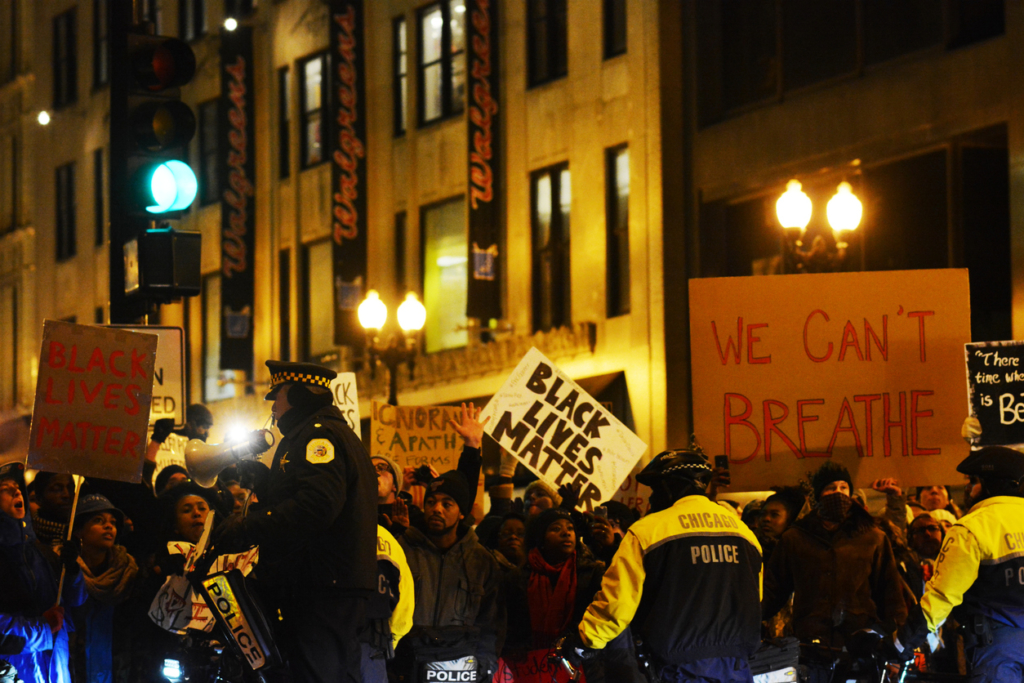Maybe now you’ve said it: “Black lives matter.” I need you to know saying it is not enough.
Shajan Abusalih, Program Assistant, Education Reimagined
When conversations of racial injustice arise with my white peers, colleagues, and friends, my entire body tenses up. It’s an habitual reaction I’ve developed after countless encounters throughout my life, where my speaking up and speaking out against racism and systemic oppression is met with contention and, consequently, a struggle to legitimize my lived experiences.
Why is that the norm? Why is this tension—this build-up of frustration and anger that constantly bubbles just below the surface—something I (and countless others) have learned to live with at all times? These are people I should feel safe and comfortable around. Yet, time and time again, I hear the same soundbites.
During moments when police brutality is national news, I hear bold echoings: “All lives matter;” “Not all cops are racist;” or “If only they had stayed out of trouble.” When those moments fade into the background and conversations are less targeted, the microaggressions surface: “I don’t see color;” “If you just work hard enough;” or “I guess I just haven’t experienced it that way”—where their lack of similar experiences doesn’t itself serve as a demonstration that the systems and structures are stacked in their favor.
These encounters have conditioned me to always be ready for the big question: “What’s race got to do with it?”
“Being ready” is a taxing mental preparation. I must bottle up my boiling anger and frustration in an effort to be relevant to them. I have to do the work of redirecting their gaze to a perspective and experience outside their own—delivering my words in a controlled and calculated manner.
As I go through the process, I quickly determine what needs to be said. I weigh my options of what the “right” words will be. I silently anticipate every follow-up question, rebuttal, and comment that I’m likely to hear in response. I carefully draw connections and hope they’re the right ones to have my point be heard.
I agonize over what it will take to get them to see what I see and feel what I feel. I remind myself to control my frustration, anger, and the cadence of my voice in an attempt to dodge imposing stereotypes. And finally, I begrudgingly apply a filter that waters down the message as much as possible so that it will stand a chance of resonating with any contentious voices.
When asked, “What’s race got to do with it?” I go through all of this work when the only thing I want to say is, “for someone who looks like me…EVERYTHING!”
When “EVERYTHING!” becomes a rally cry
What you are seeing play out yet again, in response to the murder of George Floyd, Ahmaud Arbery, Breonna Taylor, and countless others, is a rally cry by the Black community to say, “We’re done watering down our messages and tiptoeing around white fragility.” When we speak, you don’t listen.
When we do speak, the vast majority of white people fail to grasp that when moments of televised police brutality leave the headlines, the collective anger and frustration of Black people doesn’t magically disappear. Those national moments only add weight to the everyday reality where our skin dictates whether we will live another day. And, if we do, it will dictate how we are treated, reacted to, spoken to, if we’ll get that job, how much we’ll be paid if we get that job, where we will live, the quality of education we will receive, and so much more.
It sits within all of us, just below the surface, and affects every interaction and conversation we have, big or small. It’s a layered weight that includes becoming the responsible ambassador for your entire race; living with a deep desire to be heard, listened to, and understood; and surviving in a system where your life can be dictated by the harmful actions of others.
As we patiently bear the layered burden, we still manage to stride forward with grace. But, we shouldn’t have to do it alone.
Maybe now you’ve said it: “Black lives matter.”
I need you to know saying it is not enough. Black lives don’t just “matter.” We should not just be afforded the right to live. We deserve the right to live within a society where the systemic and structural barriers that infringe upon our abilities to live liberated, meaningful and fulfilling lives are completely dismantled. When you say “Black lives matter”, be ready and willing to do your part to dismantle the existing barriers that dehumanize them.
To all of my white peers, colleagues, and friends: Don’t allow the frustrations of the oppressed and marginalized be their frustrations alone. Make them your frustrations. Don’t allow their anger to be their anger alone. Make it your anger. Don’t allow the responsibility to be theirs alone. Make it your responsibility.
Most of all, don’t ask us to be patient. Become impatient with us. Do more than say you’re with us. Do the work. Act with us. Protest with us. Demand justice with us. Offer up the platforms to amplify our voices. Provide spaces that are safe, where our lived experiences are legitimate. Spaces that don’t push us away with words of contention, but rather cultivate a sense of solidarity where action is taken and shared.
Make our oppression your problem.

